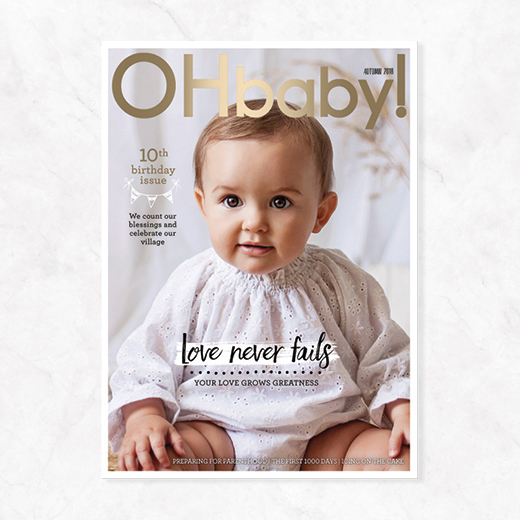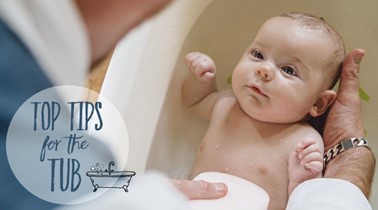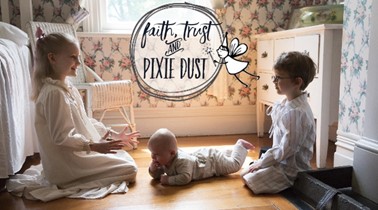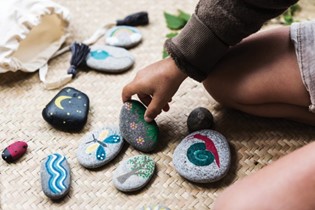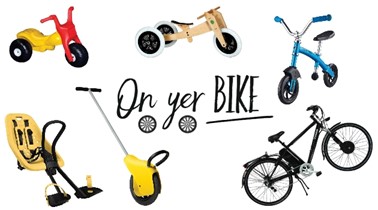How to: prepare your little one for a hospital visit

Hospital visits and medical procedures are facts of life. Hannah Davison shares expert advice to help you prepare and navigate in these unsettling times.
An apple a day keeps the doctor away – but it doesn’t really, does it? It’s something no parent likes to think about, however, life is full of the unexpected. Your child being admitted to hospital or having a medical intervention may be a reality, and as a parent, this is a scary prospect.
The good news is that, by preparing well beforehand, and arming yourself with coping strategies, you and your child will be more able to handle the situation. The flipside of heading into hospital is that, by keeping a positive mindset, it also creates an opportunity for you to participate in your child’s learning and development.
Abby Linn, Therapeutic Play Specialist from Creative Coping (creativecoping.co.nz), helps children and families manage medical interventions and hospitalisation. She offers some practical advice for those finding themselves in these situations. “As a parent or caregiver, you are the best source of love and support for your child – you know what frightens them, how they cope in stressful situations and how they like to be comforted.”

YOUR ROLE AS A PARENT
A child going to hospital may have anxiety caused by fear of the unknown, and/or concerns of being separated from family and coping with new people in an unfamiliar environment.
There are many things that can be done in preparation for, and during, treatment or hospitalisation, but it’s important to acknowledge you too, as parents, will have your own concerns. “Your child will look to you for reassurance during stressful times and will feed off you” says Abby. When facing your fears, Abby recommends discussing these with other adults or your healthcare team away from your child.
It’s important to learn as much as possible about what to expect from the hospital visit or procedure. This reduces anxiety and helps you find confidence to give your child emotional and physical support.
WHEN TO TELL YOUR CHILD
Timing is important. Some children need more time to think and digest information, whereas for others, this might increase
their anxiety. As a general guide, Abby suggests these timings:
🔹 Toddler: 1-2 days
🔹 Preschooler: 3-5 days
🔹 School-age child: At least 1-2 weeks
“Talking about what to expect doesn’t have to be a negative thing. The goal of preparing a child is to help them feel empowered and gain a sense of control. Often a child’s imagination is far worse than reality, and giving concrete information can help alleviate some of their fears. It’s also a great opportunity to build trust and gain understanding of what their actual worries are” says Abby.
WHAT TO TELL YOUR CHILD
The language you use when talking to your child needs to be considered. This may take some time and contemplation, as some words have scarier connotations than others. Your child may not have any real concept of what hospital is and what might happen there. Try to be as honest as possible, choosing words they understand.
Some useful suggestions are:
🔹 For vaccinations or injections, “The doctor is going to give you some medicine in your arm that will help you stay healthy. Mummy will be with you the whole time”.
🔹 If a child asks if it will hurt, “Everyone feels things differently, can you tell me how it was for you once it’s done?”.
🔹 If your child needs surgery, phrases like, “The doctor will make a small opening” is less scary than using the word ‘cut’.
Preparing your child by explaining simply and truthfully why they need to go to hospital and what they might expect there can help them to cope. You can explain why they need to go; what they might see, feel and hear; and who will be with them. “Try to avoid creating unnecessary concern but don’t make promises you cannot keep – for example, don’t tell your child that a procedure won’t hurt unless you can be sure” says Abby.
It’s common for children to ask the same questions repeatedly. With each answer, they are taking in more of the information you are giving them. “Remain patient and answer calmly and clearly” says Abby. “This is also an opportunity for them to see how you’re feeling about things. They’ll be looking to get reassurance from you.”
PACK FOR YOUR STAY
Having control over making some of their own choices is confidence building for a child. By involving them in their preparation and healthcare, the overall experience can be more positive.
Your child can help choose what to take when you go to hospital. Some simple home comforts can have a settling effect.
Some things to pack:
🔹 Their own pillow or blanket - this will help personalise their space and make them feel more comfortable.
🔹 A favourite toy or snuggly - comfort items can help the transition from home to hospital.
🔹 Toys, games, books or music - these can be great for distraction or settling in times of anxiety.
🔹 Pyjamas or toiletries - they may like to choose a special new pair of pyjamas or toothbrush to use when they’re there.
🔹 Photos of family or pets.
PREPARATION FOR ALL AGES
How you prepare your child will depend largely on their age. One thing you can do for a child of any age is make sure that you are emotionally prepared and well informed. This will mean you’ll feel more relaxed and confident, able to give them the reassurance and comfort they’re looking for, and answer any questions they have to the best of your ability.
Preparation ideas by age:
Infants
🔹 Bring their favourite comfort items, eg stuffed animal, blanket and toys.
🔹 Relaxing music to play or books to read together.
🔹 Try to keep to normal routines.
Toddlers
🔹 Talk about what’s going to happen and what to expect one to two days before the visit using simple, understandable language.
🔹 Reassure them you’ll be with them as much as possible.
🔹 Involve them in choosing some favourite things to pack.
🔹 Read books about going to hospital.
🔹 Play with toy medical kits to act out a medical scenario on their doll or teddy. This is a good opportunity to discuss how their ‘patient’ might be feeling and discover how much they understand.
Preschoolers
🔹 Talk about what is going to happen and what to expect three to four days before the visit using simple, understandable language.
🔹 Reassure them they did not do anything to cause the hospitalisation or procedure.
🔹 Encourage them to talk about their feelings and give them the opportunity to ask questions.
🔹 Involve them in choosing some favourite things to pack.
🔹 Read books about going to hospital.
🔹 Play with toy medical kits to act out a medical scenario on their doll or teddy.
COPING STRATEGIES DURING PROCEDURES
Different coping strategies may be used depending on what the procedure is, and the child’s age. Discuss with your healthcare team how you can be involved to support your child.
Physical touch
🔹 Your physical presence, whenever possible, is the most effective and comforting influence for a child of any age.
🔹 Use items such as their favourite stuffed animal or blanket for comfort.
🔹 Depending on the procedure, you could hold, sit or lie next to your child, or just stay within view.
🔹 Rub the child’s back, arm or forehead using long, slow strokes.
🔹 Speak or sing softly into their ear, this keeps their focus on you, rather than the procedure.
Breathing and blowing
🔹 Take deep breaths in and out together so your child can copy you. This helps a toddler or preschool-age child relax.
🔹 Use bubbles or a pinwheel, or pretend to blow out birthday cake candles. This incorporates deep breathing and distraction. You can make a game out of this by trying to blow big or small bubbles, or counting how long they can blow for.
Distraction
🔹 Distraction can help a child of any age focus on something interesting and fun.
🔹 Use items such as rattles or pacifiers for babies. Use pop-up or sound books, electronic devices for games or music, and toys for toddlers or preschool-
aged children.
🔹 Participate with your child and let them hold and play with the item. If it’s not possible for them to hold it, tell them what you are going to do with it, or let them guide you.
Imagination
🔹 Practise playing imagination games before the procedure so it’s a familiar activity rather than introducing something new at a difficult time.
🔹 Talk about their favourite things such as people, pets, activities or a special place.
🔹 Make up a story together, following their lead as they make decisions. Ask questions while they imagine what happens next. Interaction holds their interest in what you’re doing.
TURNING A NEGATIVE INTO A POSITIVE
Participation in their own care gives a child some sense of control over what’s happening to them. Although medical intervention might be a daunting prospect, it also provides the opportunity to work together in finding ways to cope, and strategies that might be handy in the future.
It’s important to spend time afterwards reflecting on the experience as your child makes sense of what’s happened. Medical play can help start the conversation, and gives you the chance to acknowledge their learning and resilience, building confidence they’ll carry forward with them as they grow. As a parent, you can have a huge effect on your child’s developing self-esteem by emphasising the positives in any situation.
|
QUESTIONS TO ASK YOUR HEALTHCARE PROVIDER: • Why is the hospital visit or procedure necessary, and how will this help my child? • How long will it take and/or how long will we need to stay? • Will my child need any medicine and how will it affect them? • Can a parent stay with the child in hospital and during the procedure? • Can we bring personal items from home? • If your child has special needs, is the hospital aware of these, and what support is available? • Is there a playroom or preparation programme to help a child’s understanding of what’s going to happen? |
| Hannah Davison is a Scottish-born, New Zealand-grown freelance journalist, blogger, and writer of children’s fiction. She can be found at home on their family farm in North Canterbury with her husband, two children and a range of animals. Find out more at hannahedavison.com. |

AS FEATURED IN ISSUE 41 OF OHbaby! MAGAZINE. CHECK OUT OTHER ARTICLES IN THIS ISSUE BELOW
